This article is adapted from a presentation delivered by Marek Babic, associate professor of history at the Catholic University in Ružomberok, Slovakia, during the 2023 meeting of the Catholic Universities Partnership. As part of the hosting university of this meeting, Babic participated in a discussion of Catholic leaders in higher education and shared the story of Jozef Ďurček.
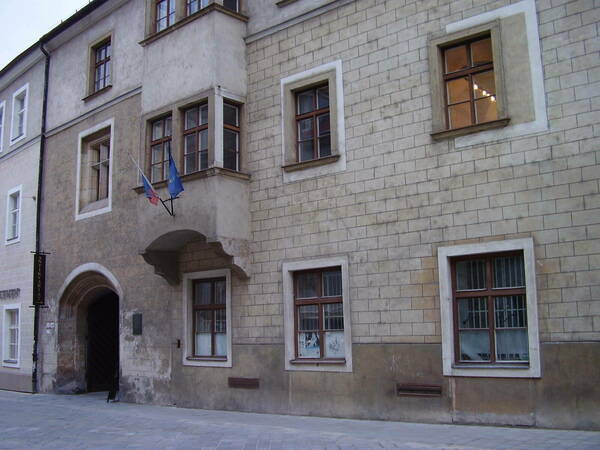
Slovakia is a country with a rich tradition of higher education. The first university on its territory was established in Bratislava in the 15th century, known as Academia Istropolitana. At the beginning of the 17th century, the University in Trnava was founded by Emperor Ferdinand II. The first modern Slovak university, Comenius University in Bratislava, was established by law in 1919.
The entire education system in the Czech Republic and Slovakia has been under the political influence of the Communist Party since it took power in 1948. The humanities suffered the most because they were intensively targeted by orders of the government in Marxist-Leninist ideology, in a spirit hostile to religion and especially to the Catholic Church. At all levels of school, teachers were trained in the spirit of scientific atheism and could not publicly practice their religious faith. As a result, entire generations of Catholic intellectuals from earlier periods gradually disappeared, and new ones grew up in secret, with limited opportunities to receive a good humanities education within the republic.
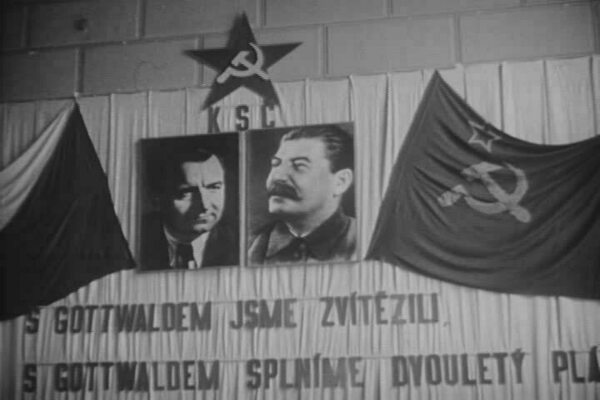
The pressure of the communist regime on Slovak schools was strong, persistent, and often cruel. However, despite absolute political power, the communists were unable to remove religious people from the school system. Although many teachers went through Marxist education, they quietly kept their faith. If they somehow expressed themselves in public as believers, they were not dismissed from their jobs, but they were also prevented from holding leadership positions or achieving higher academic degrees.
One such brave Christian intellectual was Jozef Ďurček. He was born in 1930 near Galanta, a small town in southwestern Slovakia. In 1942 he began to study at the Catholic grammar school in Trnava, which was at that time under the strong influence of the Jesuits. Jozef was an active student and led a confessional association of students, called the Marian Congregation. He was its chairman until the closure of the grammar school by the communists in 1950.
Jozef Ďurček's early career
In 1950, Jozef enrolled at the Faculty of Natural Sciences of Comenius University in Bratislava, where he decided to study mathematics and physics. It was a scientific area where communists could not impose their ideology and political views. After completing his studies, he worked at a scientific institute in Prague, and in 1961 he started working at the University of Transport and Communications in Žilina as an assistant professor. He convinced the academic community of his professional qualities, and in 1969, he was able to complete a one-year study stay in Paris, which was uncommon under communist rule. Only those who showed the highest scientific qualities were allowed to travel to Western Europe, considered a hostile region by the communists at the time. After returning from Paris, the communists prevented him from being appointed associate professor because he supported “The Two Thousand Words” manifesto authored by Czech reformist writer Ludvík Vaculík.
Only after the fall of the communist regime in 1989 was Jozef Ďurček able to achieve the academic positions commensurate with his professional qualities. He was elected head of the Department of Physics and inaugurated as a professor in 1993.
As a renowned professor, he came to Ružomberok in 1995. Ružomberok is the metropolis of lower Liptov, a region with a strong Catholic background. The most famous native is Andrej Hlinka, a Catholic priest, one of the leading figures of the Slovak national movement at the beginning of the 20th century. Catholic education here had a rich historical tradition that the communists could not suppress even during the four decades of their dictatorship. Shortly after the fall of the communists, Catholic schools of all levels, except the university, were established in Ružomberok.
A new Catholic university
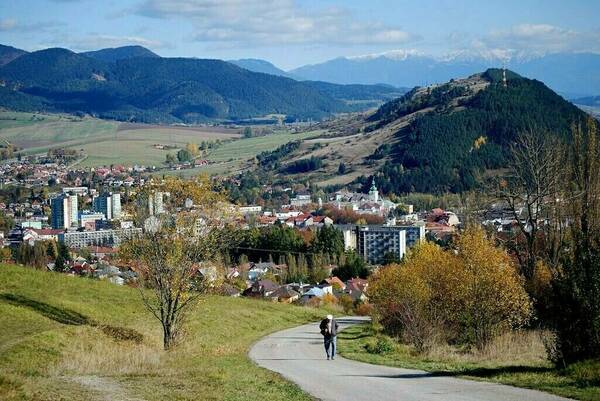
After he arrived in Ružomberok, Professor Ďurček was involved in preparations for establishing a new Catholic university. At that time, demand was growing for the education and training of a new generation of teachers in an environment unencumbered by the communist past. Catechists and teachers of religion were especially needed because, at the beginning of the 90s, there was a renaissance of interest in theological disciplines and religious issues in Slovakia.
From the beginning, Jozef Ďurček worked closely with the Slovak bishops, especially František Tondra and Rudolf Baláž, as well as with the local church in Ružomberok (Dean Kostelanský). He used his reputation as an internationally renowned scientist to attract excellent experts from all over Slovakia to the small district town. In 1995, the Pedagogical Institute of St. George was first established. The following year, the Institute became the Catechetical and Pedagogical Faculty of Trnava University. In 1997, this faculty was incorporated into the University of Žilina. From the beginning, Jozef Ďurček headed these institutions as director or dean. The process culminated on July 1, 2000, when the Catholic University in Ružomberok began to function as a non-state university with two faculties. Jozef Ďurček was the creator of the first Statute of the Catholic University.
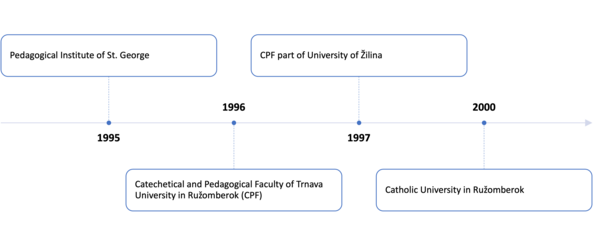
The establishment of the Catholic University in Ružomberok in five years was a minor miracle in Slovak conditions. The university was founded "on a green field", with very modest financial and human resources. Growth in the first five years was incredibly dynamic and tumultuous. While in 2001-02, only 635 university students studied in Ružomberok. Five years later it was almost 10,000 students and four faculties.
What can we learn from Ďurček?
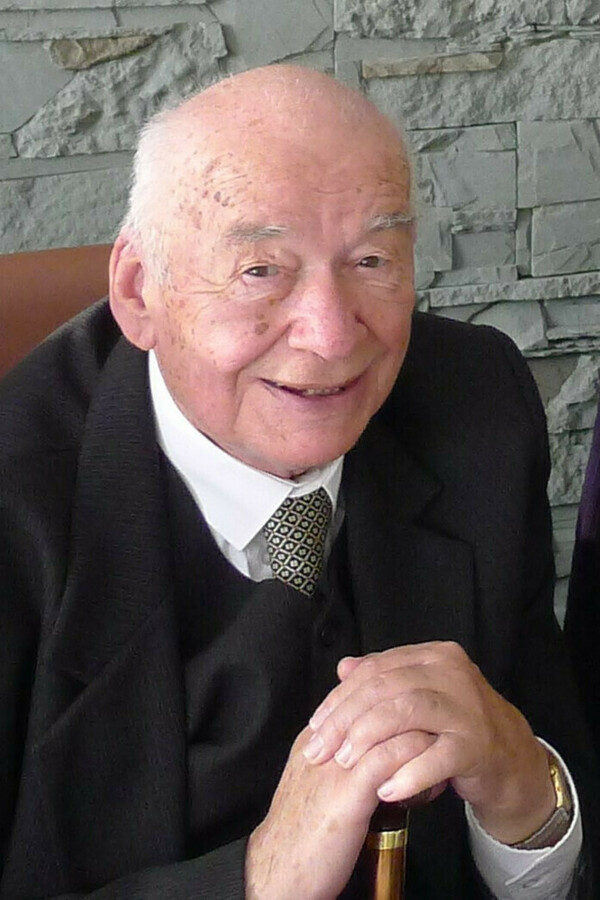
This rapid development can be attributed to several factors. One factor was the group of leaders who gave the Catholic University a unique character. They were deeply rooted in God and His love, and from Him, they drew inspiration and strength to overcome all obstacles. From the beginning, they believed that the Catholic University was God’s work—that it had an important mission—and they transferred this conviction to those around them. I believe that Jozef Ďurček was the key figure who laid solid foundations for the Catholic University and left an important legacy for future generations.
Modesty/humility
Several colleagues and students who collaborated with Professor Ďurček from the beginning highlighted one characteristic of his above all others: modesty. He had a quiet, introverted nature, but this did not lead him to individualism and detachment from others. He was one of those people who commanded respect not just for his erudition but also for his accessibility and gentleness. He knew how to stimulate people with his arguments and knowledge, but at the same time, he did not act as a leader who knows everything (a “know-it-all”). He was an advocate of the motto "Verba movent, exempla trahunt." He repeated that without personal sacrifices, it is impossible to build great things – that sometimes it is necessary to act selflessly. He worked for a minimum salary and in isolation from his own family.
Kindness
I am lucky enough to have experienced the beginnings of the university and to meet Prof. Ďurček several times. At that time, I was a recent graduate of the University of Bratislava and taught Latin in Ružomberok. The professor belonged to the "old school" and spoke Latin, among other languages. He had no problem talking to me several times about the importance of Latin and the relevance of classical culture in the modern world. I was 24 years old then, and I felt his charisma and amazing kindness throughout the conversation. He always had a slight smile on his face.
Piety
The professor was not ashamed of his deep piety. Students and colleagues met him regularly in the university chapel and he did not miss any religious celebrations. He did not hesitate to open academic events or work meetings with prayer. This was something completely exceptional and new in Slovak conditions in the mid-1990s. His passion was to point to God's hand in creation, and he did it with the authority of an internationally renowned physicist. He organized faculty-wide seminars, where various aspects of God's presence in the world and among people were discussed. Students and colleagues intensely perceived this dimension of his personality and gradually he gained not only respect but also love from the entire academic community.
Family atmosphere
Almost all those who experienced the first years of the Catholic university in Ružomberok under Professor Ďurček’s leadership agree that there was a great family atmosphere in the academic community. Both students and teachers formed one small community, all knowing each other by name. Professor Ďurček's charismatic personality created a paternal impression. The combination of wisdom, modesty, kindness, and piety in his person was so intense that no one doubted God's help in building the Catholic University.
Vision and mission
The first years after the establishment of the Catholic University were marked by dynamic and extensive growth. Professor Ďurček was hesitant about this growth, as he always prioritized quality education over quantity. The growing number of students and teachers threatened the family atmosphere of the university. He believed that "the perspective of the university will depend on its ability to maintain its fidelity – Catholic identity and, at the same time, the quality of education." However, he did not want the university to become an exclusive club only for the best students from the richest families. He reiterated that the Catholic University must be open to students from socially disadvantaged families and poorer regions of Slovakia. He took great care to ensure that the university did not become just a regional institution closed in on itself. He had a wealth of international experience and from the beginning, he used his many friendships in Europe and the United States of America to attract visiting scientists to the small town of Ružomberok (and vice versa).
The university today and into the future
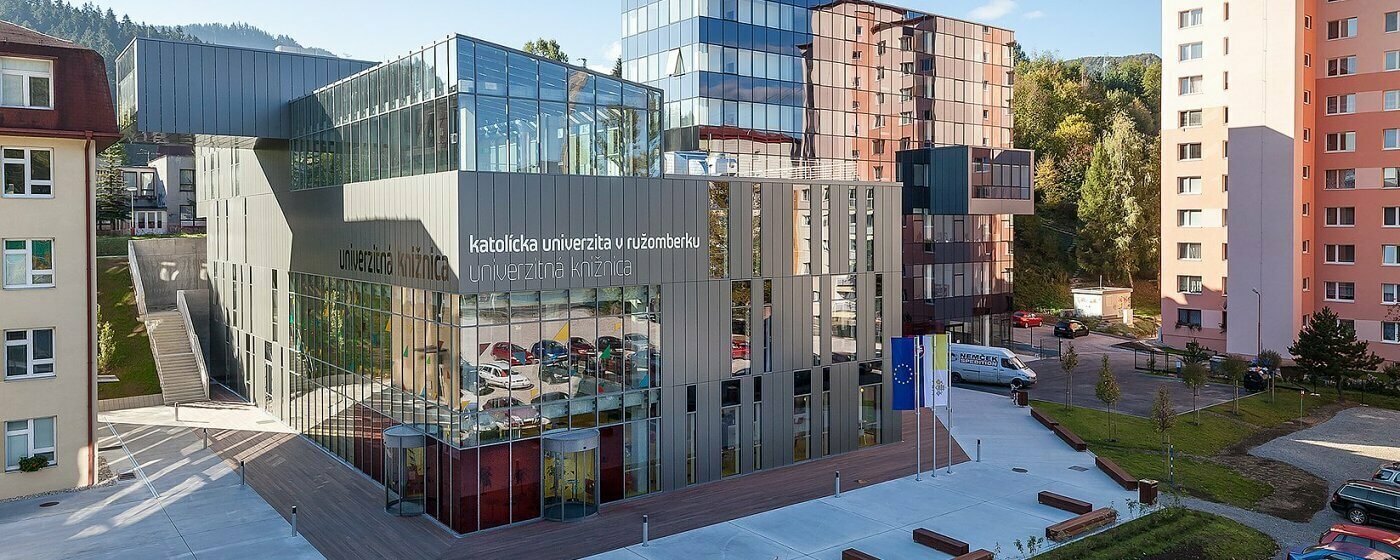
Jozef Ďurček's message was that "history teaches us that great works – such as the building of a university – cannot be realized without people passionate about the cause, faithful ideals, and willing personal sacrifices."
Our university is still a young institution, but it has already undergone many turbulent changes, from humble beginnings to extensive growth and now reduction. In recent years, the University has been going through a multidimensional crisis caused by many factors: demographic decline in Slovakia, non-systemic funding, instability of legislation, and several human failures in the management of the university and faculties. That is why it is necessary and useful to be inspired by the life and professional stories of the people who stood at the foundation of our university.
Professor Ďurček was a founder, enthusiast, and visionary – but most importantly, he was a wise, humble, and selfless person. I believe that here is the key to the future of the university: wisdom, modesty, and commitment. Professor Ďurček was the benchmark for these qualities.
Originally published by at crossingthesquare.nd.edu on December 14, 2023.